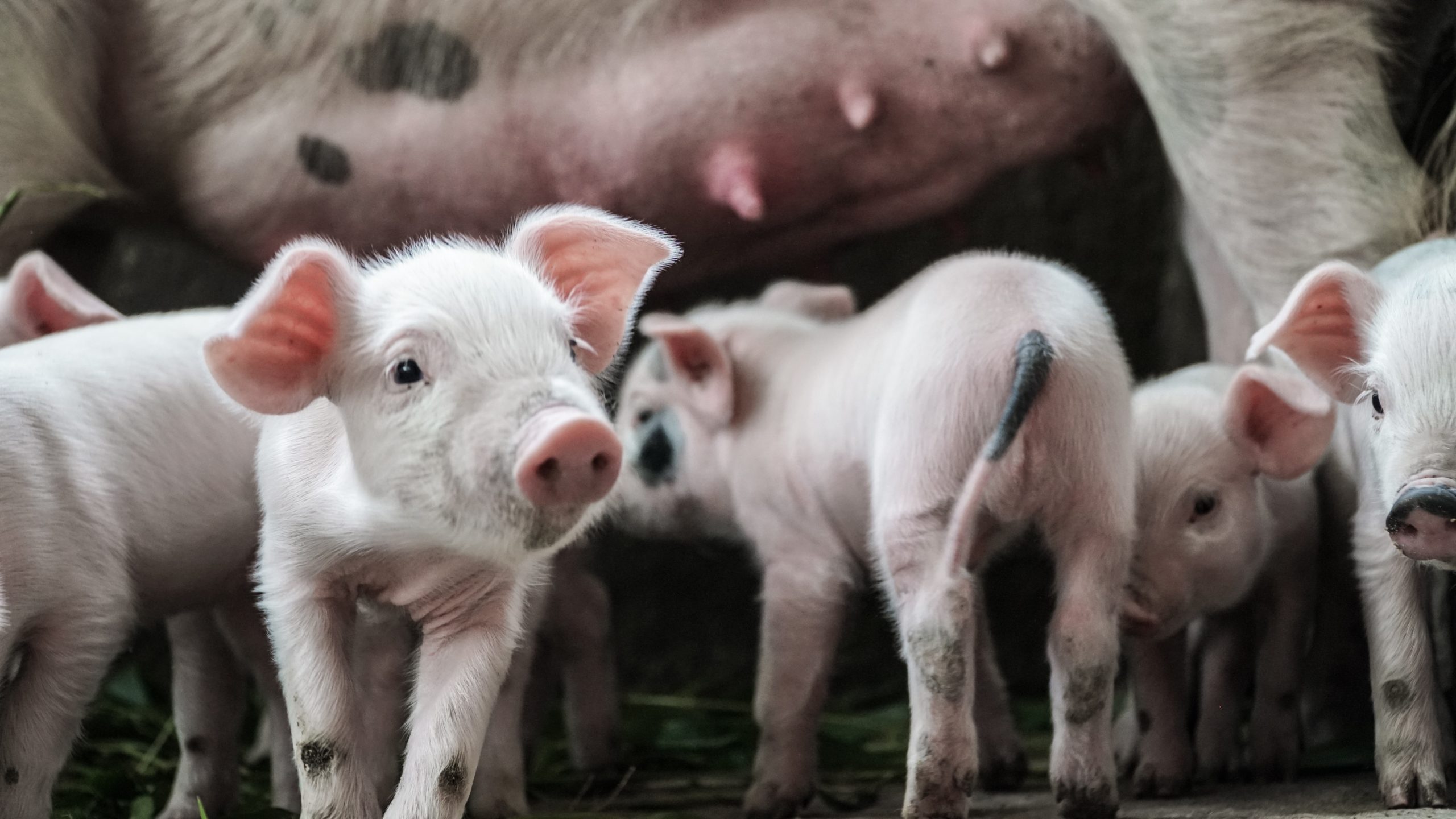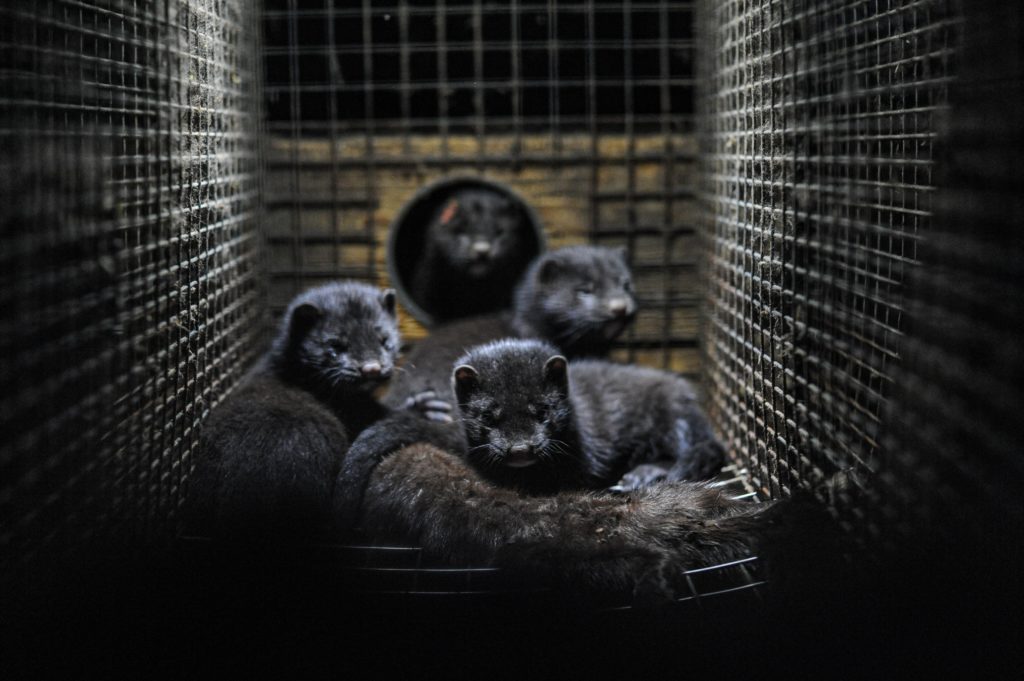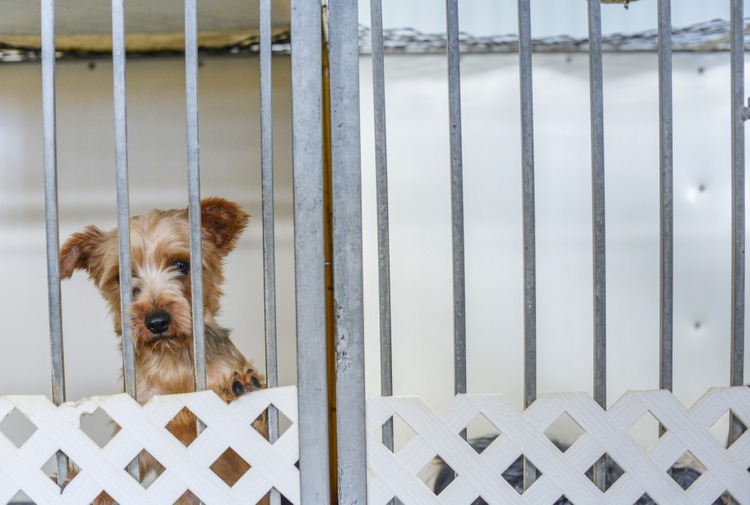2020 has been a challenging year for human and nonhuman animals alike. Hiding behind the headlines of bushfires and a global pandemic, we uncovered a number of uplifting animal law developments.
In case you missed them, here are 6 legal wins that have inspired us in 2020!
1. New Zealand High Court rules that confining female pigs in farrowing crates and mating stalls is ‘unlawful and invalid’
In a case the first of its kind, a judge has ruled that the use of farrowing crates and mating stalls is unlawful under New Zealand’s primary animal welfare legislation. In response, the NZ Government announced that their use will be phased out by 2025.
Farrowing crates are small cages in which mother pigs are held before and after giving birth; sometimes for over five weeks. These cages are extremely restrictive and prevent mothers from being able to turn around or display any of their natural nesting and social behaviours. Mother pigs endure significant psychological and physical suffering when confined in this manner. Mating stalls are similar cages used to confine pigs as they are forcibly artificially inseminated.

The two organisations behind the legal challenge (SAFE and the New Zealand Animal Law Association) argued that allowing pigs to be confined in this way without specifying a phase out deadline, was in breach of the legislation. This is because a number of years prior the parliament had made it clear that any permitted practices that fell short of the minimum standards should be gradually phased out. The Court agreed, finding that these practices are inconsistent with the animal welfare objectives of the legislation – such as ensuring that animals are able to display natural and normal behaviours.
The decision is not only significant for the approximately 128,000 pigs confined in these crates, but also more broadly for the entire animal welfare regime in New Zealand. This incredible win for mother pigs is being widely touted as the most significant NZ animal welfare case in a generation!
2. France and the Netherlands ban mink farming, with Ireland and Poland likely to follow suit
As a result of conditions that facilitate the rapid spread of COVID-19, governments across Europe have committed to bans on the commercial farming of mink for their fur.
Most farmed mink are forced to spend their entire lives in cramped, dark cages and deplorable conditions. Recent undercover footage released from a Polish farm revealed mink displaying aggressive behaviour including cannibalism, with some suffering open wounds and limb paralysis.
COVID-19 outbreaks on fur farms have occurred across Europe, with concerns in Denmark that a new wave of vaccine-resistant coronavirus could be created by a mink variant of COVID-19.

In response to these concerns, tens of millions of mink have been culled. Denmark, the second largest producer of mink, has gassed and burned 17 million mink alone. Although this is devastating, it has increased awareness of the inherent cruelties in the fur farm industry and called into question its social licence.
France has announced that all mink fur farms will be closed by 2025, and the Netherlands has brought forward their ban from 2024 to March 2021. Ireland and Poland are also likely to implement bans on mink fur production. A Polish ban would be particularly significant as they are the third largest producer of mink behind Denmark and China. This single ban would mean over 6 million mink would be spared from a lifetime of suffering.
This controversial practice has faced increased pressure from animal welfare and health advocates over the past few decades, however COVID-19 may be the final push needed to end this global industry once and for all.
3. Happy the elephant takes another step closer to legal personhood
In a victory three years in the making, the Bronx County Supreme Court made a ground-breaking statement that called into question the presumption that non-human animals can only be classified as ‘property’ under the law.
Happy the elephant has been kept at the Bronx Zoo for over 40 years; up until recently she spent the last 17 without the company of other elephants. Happy became famous for being the first elephant to recognise herself in a mirror, a common indicator of self-awareness.
Related Blog: ‘The Fight for Elephant Rights in New York’.
In this case, the Nonhuman Rights Project argued that Happy should be recognised as having legal personhood and the fundamental right to bodily liberty. Legal personhood is a legal term that means being capable of possessing legal rights. If Happy has personhood status, she may be entitled to the right to bodily liberty and in turn habeas corpus relief, which is a legal remedy for challenging unlawful imprisonment.
Although the Court did not rule that Happy had legal personhood, the judgment is a significant step in the right direction. In a moving decision, the Judge stated that Happy ‘is more than just a legal thing, or property. She is an intelligent, autonomous being who should be treated with respect and dignity, and who may be entitled to liberty.’
The Nonhuman Rights Project have since appealed this decision unsuccessfully, however they now intend to take the case to New York’s highest court – so stay tuned!
4. Pakistani Court rules that the ‘world’s loneliest elephant’ should be released into a sanctuary
In May 2020, a High Court in Pakistan ruled that Kaavan, also known as the ‘world’s loneliest elephant’, should be released into a sanctuary. Kaavan spent over 35 years enclosed in a small zoo, displaying significant behavioural and physical problems from inadequate care and poor living conditions.
This milestone case affirmed ‘without any hesitation’ that nonhuman animals have natural rights including the right ‘to live in an environment that meets [their] behavioural, social and physiological needs.’ The judge relied in part on the case of Happy the elephant, referring to her as an ‘inmate’ of the Bronx Zoo. Although this case doesn’t impact on the rights of animals in other jurisdictions, it does strengthen the growing global legal movement in support of animal rights.
Kaavan’s rescue was the result of a long campaign by animal protection organisation Four Paws International, celebrity Cher and the Islamabad Wildlife Management Board. In wonderful news, Kaavan has now been released into his new sanctuary home in Cambodia!
5. England, France and Wales ban the use of wild animals in circuses
In January 2020, England banned the exhibition and performance of wild animals in travelling circuses. Wales quickly followed suit with a ban effective from 1st December 2020. France’s Environment Minister announced a similar prohibition, including a gradual ban on keeping dolphins and orcas in marine parks.
Wild animals such as elephants, bears, dolphins and large cats have complex needs that cannot be met in exploitative circus environments. As more countries ban animal circuses, thousands of sentient creatures will no longer endure confinement and forced performance for the sake of human entertainment.
Although Australia has not legislated an official prohibition, over 40 local councils have banned the use of circus animals!
6. Western Australia commits to stopping puppy farming
Earlier this year, proposed legislation was introduced in Western Australia to outlaw the ‘awful, terrible, shocking practice’ of puppy farming, as described by WA Premier Mark McGowan.
Mother dogs in puppy farms often endure long periods of isolation in dark cages. They suffer through distressing, unhygienic living conditions and a lack of adequate veterinary care. Strawberry the boxer made headlines in September after she was found dead with her babies rotting inside of her. Strawberry was less than one when she began intensive breeding.

Under the proposed amendments, there will be mandatory de-sexing of non-breeding dogs, a centralised dog registration system to track animals, and pet shops will be transformed into adoption centres. These amendments will save thousands of dogs from puppy farming conditions and hopefully encourage more Australians to adopt rather than shop!
Although the Bill has now lapsed, it’s hoped these important reforms will be reintroduced next year. You can learn more about the campaign to end puppy farming across Australia here.
Even in the face of the COVID-19 pandemic, advocates across the world are continuing to inspire us with their tireless passion for animal protection. If you’re looking for more stories of hope, here are some we haven’t covered:
- France banning the shredding of male chicks;
- Czech Republic banning the use of cages for laying hens;
- Vietnam banning wildlife imports and wildlife markets.
Thank you to Annice Savill for researching, writing and assisting Voiceless to create this blog. Annice is a law student at UNSW Law who completed a legal internship with Voiceless in 2020 – and we are very pleased to announce that Annice has decided to stay on as a communications volunteer!
Voiceless Blog Terms and Conditions: The opinions expressed on the Voiceless Blog are those of the relevant contributors and may not necessarily represent the views of Voiceless. Reliance upon any content, opinion, representation or statement contained in the article is at the sole risk of the reader. Voiceless Blog articles are protected by copyright and no part should be reproduced in any form without the prior consent of Voiceless.


